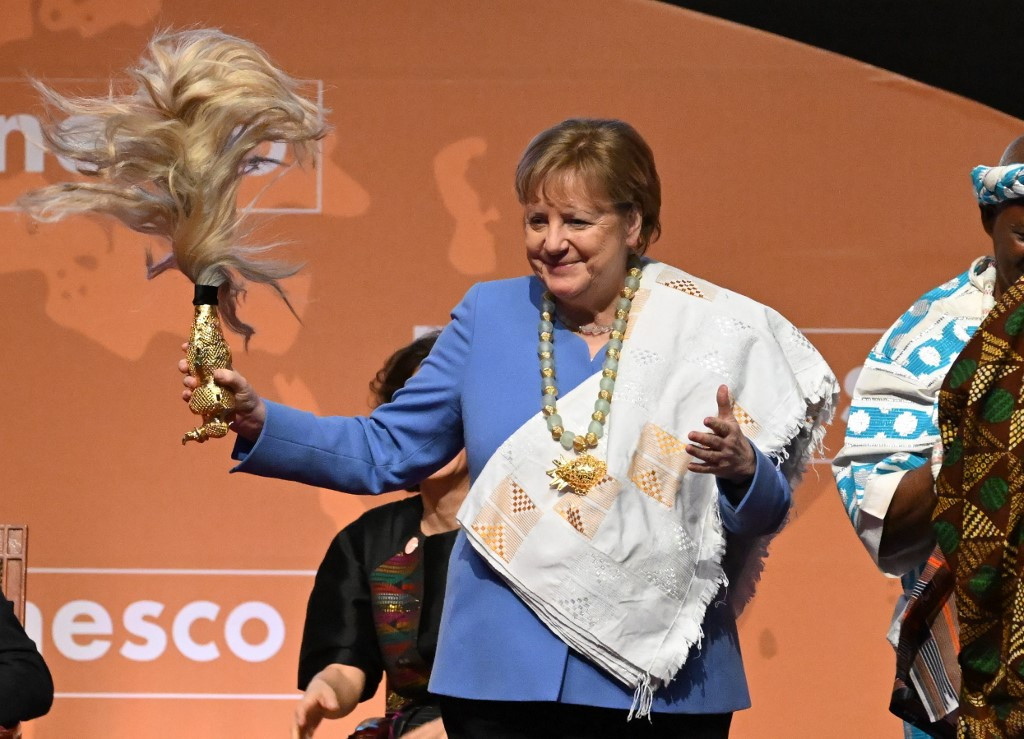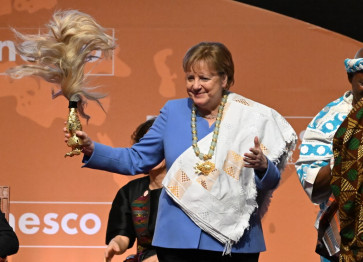Popular Reads
Top Results
Can't find what you're looking for?
View all search resultsPopular Reads
Top Results
Can't find what you're looking for?
View all search resultsTo implement vital social and economic reforms, Germany must break with Merkel
The music has stopped, and everyone is caught in a suspenseful yet completely predictable silence, as the once-roaring economy slows to a cautious hum.
Change text size
Gift Premium Articles
to Anyone
D
espite having been out of office for three years, the ghost of Angela Merkel still looms large over Germany. The former Chancellor’s 16 years of strategic inaction in the cosmic quest for consensus and stability haunted the fractious traffic light coalition to its final breath, when it finally imploded. Even Germany’s deepening economic stagnation, creeping deindustrialization, military defenselessness or crumbling public infrastructure fell short of driving long overdue reform.
So, with a snap federal election on the horizon, can a new leader break Germany's paralyzed cycle of inaction?
Germany is a country starved for purpose and meaning. Long admired for its economic dominance abroad, it is living through its very own identity crisis. The nation’s exceptionalism manifested through its perceived imperviousness to populist pressures and economic shocks in the last decades appeared like an enduring oasis of calm in a constant sea of chaos. No longer. Germany is now part of the European mainstream. Who are we? What are we good at? Who are our friends? What is our place in the world? These are the questions the electorate is asking.
The political power vacuum following this government collapse, however, is unlikely to address the root causes underlying these existential questions. Polling nationally at 34 percent, the conservative Christian Democratic Union (CDU), led by Friedrich Merz, is poised to make him Germany’s next leader.
Even so, Merz would need to rely on smaller parties to form a coalition after the pending election, likely including the Social Democrats (SPD), Greens or the liberal Free Democrats (FDP), though the latter are increasingly seen as unlikely to surpass the 5 percent parliamentary threshold.
More fundamentally yet, with increasing political fragmentation, marked by the ethnic nationalist Alternative for Germany (AFD) emerging as the second-strongest party nationally and the Kremlin-friendly "left-wing conservative" Sahra Wagenknecht Alliance (BSW) surging in eastern states, the era of decisive political mandates may be a thing of the past.
But how did we get here? Simply put, Germany’s industrial economic model really worked until it really did not. Under former chancellor Merkel’s 16-year leadership, the economy grew by 34 percent. That’s more than the combined gross domestic product (GDP) growth of Spain, Italy and the United Kingdom over the same period. Powered by skilled labor, cheap energy, low interest rates and thriving world trade, the country’s fabled automotive, engineering and chemical industries produced seemingly unstoppable trade surpluses.


















